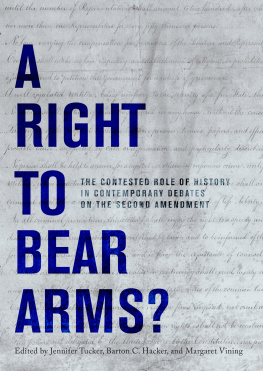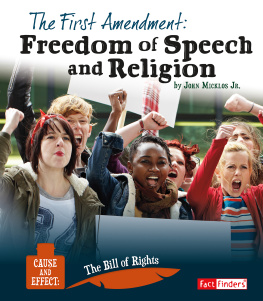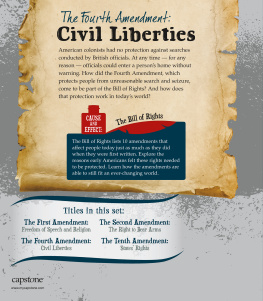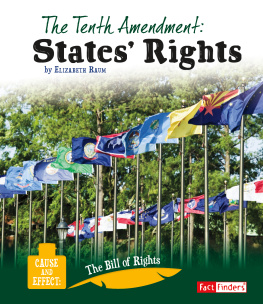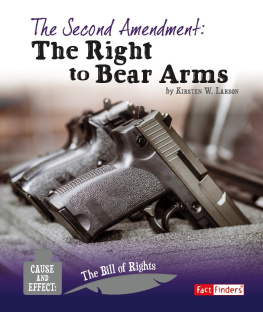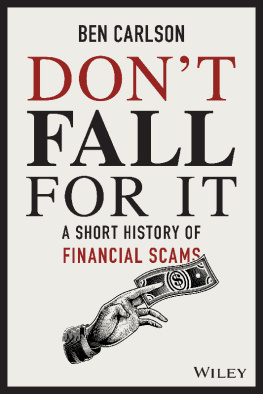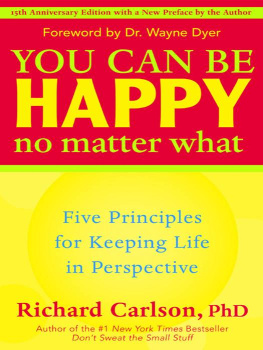Jennifer Carlson - Policing the Second Amendment
Here you can read online Jennifer Carlson - Policing the Second Amendment full text of the book (entire story) in english for free. Download pdf and epub, get meaning, cover and reviews about this ebook. year: 2020, publisher: Princeton University Press, genre: Politics. Description of the work, (preface) as well as reviews are available. Best literature library LitArk.com created for fans of good reading and offers a wide selection of genres:
Romance novel
Science fiction
Adventure
Detective
Science
History
Home and family
Prose
Art
Politics
Computer
Non-fiction
Religion
Business
Children
Humor
Choose a favorite category and find really read worthwhile books. Enjoy immersion in the world of imagination, feel the emotions of the characters or learn something new for yourself, make an fascinating discovery.

- Book:Policing the Second Amendment
- Author:
- Publisher:Princeton University Press
- Genre:
- Year:2020
- Rating:5 / 5
- Favourites:Add to favourites
- Your mark:
- 100
- 1
- 2
- 3
- 4
- 5
Policing the Second Amendment: summary, description and annotation
We offer to read an annotation, description, summary or preface (depends on what the author of the book "Policing the Second Amendment" wrote himself). If you haven't found the necessary information about the book — write in the comments, we will try to find it.
Policing the Second Amendment — read online for free the complete book (whole text) full work
Below is the text of the book, divided by pages. System saving the place of the last page read, allows you to conveniently read the book "Policing the Second Amendment" online for free, without having to search again every time where you left off. Put a bookmark, and you can go to the page where you finished reading at any time.
Font size:
Interval:
Bookmark:
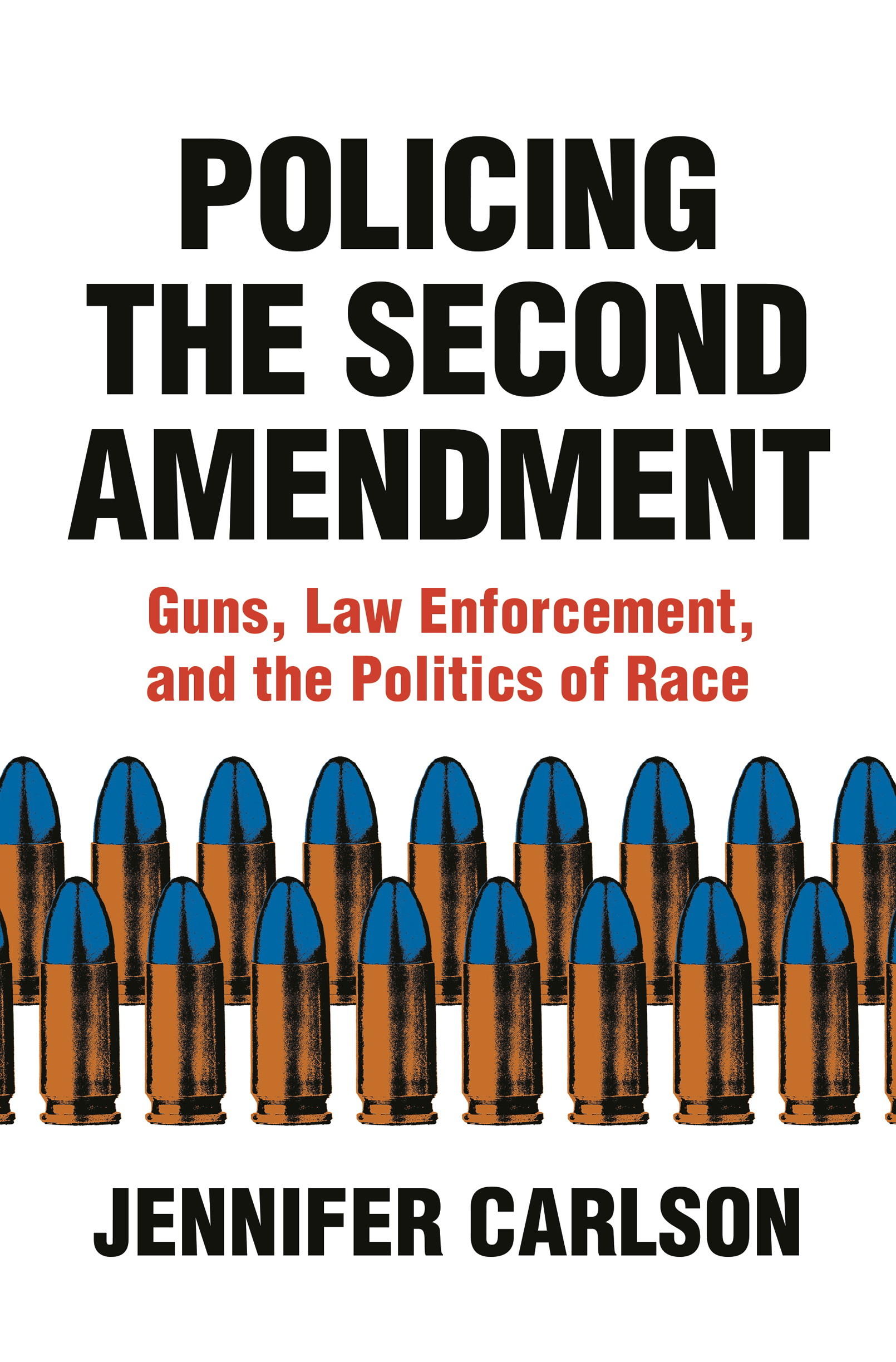
POLICING THE SECOND AMENDMENT
POLICING THE SECOND AMENDMENT
GUNS, LAW ENFORCEMENT, AND THE POLITICS OF RACE
JENNIFER CARLSON
PRINCETON UNIVERSITY PRESS
Princeton and Oxford
Copyright 2020 by Princeton University Press
Requests for permission to reproduce material from this work should be sent to permissions@press.princeton.edu
Published by Princeton University Press
41 William Street, Princeton, New Jersey 08540
6 Oxford Street, Woodstock, Oxfordshire OX20 1TR
press.princeton.edu
All Rights Reserved
ISBN 9780691183855
ISBN (e-book) 9780691205861
Version 1.0
Library of Congress Cataloging-in-Publication Data
Names: Carlson, Jennifer, author.
Title: Policing the second amendment : guns, law enforcement, and the politics of race / Jennifer Carlson.
Description: Princeton : Princeton University Press, [2020] | Includes bibliographical references and index.
Identifiers: LCCN 2020011510 (print) | LCCN 2020011511 (ebook) | ISBN 9780691183855 (hardcover ; alk. paper) | ISBN 9780691205861 (ebook) Subjects: LCSH: Firearms ownershipUnited States. | Gun control United States. | PoliceUnited States. | African AmericansViolence against. | Discrimination in law enforcementUnited States. | United StatesRace relations.
Classification: LCC HV8059 .C373 2020 (print) | LCC HV8059 (ebook) | DDC 363.330973dc23
LC record available at https://lccn.loc.gov/2020011510
LC ebook record available at https://lccn.loc.gov/2020011511
British Library Cataloging-in-Publication Data is available
Editorial: Meagan Levinson, Jacqueline Delaney
Production Editorial: Terri OPrey
Text Design: Carmina Alvarez
Jacket/Cover Design: Karl Spurzem
Production: Erin Suydam
Publicity: Kathryn Stevens, Maria Whelan
Copyeditor: Madeleine Adams
Jacket/Cover Credit: Shutterstock
To those who must struggle over terms they did not choose
- 1
- 24
- 57
- 86
- 106
- 143
- 171
- 182
- 197
- 199
- 201
- 204
- 205
- 209
- 237
- 263
This book is an attempt to unravel the relationship among legitimate violence, public law enforcement, and race through the lens of gun politics and gun policy. It is animated by data in three forms: newspaper and archive analysis, interviews with police chiefs, and observations of gun licensing processes. Data involving people and their lived experience are unruly and often contradictory. Sociological analysis demands that weits authorssubordinate the messiness of lived experience, and the uneven schema used to navigate and make sense of it, to develop our parsimonious theoretical claims. But people, and their experiences, are not merely sociological categories, and unruly data are not just objects of analysis or grounds for narrative elaboration. Data and analysis always also stand as ethical claims, moral proclamations, and political stances. For different readers with their own distinctive experiences with guns, policing, and the politics of race, different portions of this book may be difficult to read and absorb. As author, I do not take for granted, and deeply appreciate, your willingness to tread these waters. Thank you.
I wrote this book in the two and a half years that my father lived with, and then died from, ALS. ALS is a relentless disease; it always ends in death, but thats not the worst part. On a monthly, then weekly, then seemingly daily basis, my dad lost function. Each step in this graduated declinenot being able to feed himself; not being able to walk; not being able to swallow; not being able to speak; not being able to hold up his own head; finally, not being able to even blink yes or nosignaled a physical loss but also a deeply social one. We have an easy way of measuring biological death; social death, not so muchand were wary to face such slow and severe deterioration head-on.
As my fathers illness undid him, there were too many moments of sadness, loss, and despairbut also remarkable moments of gratitude, happiness, and connection. The awareness granted by the impending death of a loved one can affect people in many ways; I found myself recognizing life anewand increasingly refusing to entertain the fear, anxiety, hastiness, or any other emotion that can rob us of the joy of what we do and what we achieve. Although I could not have known it at the time that I was collecting interviews and observations for what would become this manuscript, this book became my refuge. It provided a space for me to recognize the pleasure of losing oneself in reading and writing; to acknowledge the exuberance of being able to objectify my thoughts and ideas into the written word; and to greet the privilege of contributing to a conversation beyond myself. I am deeply grateful to be able to do this work. My ability to do so is a testament to my fathers perseverance and example in ways I am only now starting to grapple with.
This book would not have been possible without the generosity and goodwill of dozens of police chiefs who agreed to share their perspectives and experiences on gun politics, gun policy, gun violence, and gun law enforcement. Although my pledge to keep participants anonymous precludes me from acknowledging them by name, I am grateful that they took the time to speak with me, and that they shared their insights honestly and frankly. I hope that they (and readers more broadly) find in this book a serious, and sincere, sociological attempt to understand the crucial ways in which police make sense of, and engage with, guns in America.
Many people contributed their own intellectual labor to this book. I want to especially thank Kristin Goss, Nikki Jones, Cal Morrill, and Maria Smith for reading and rethinking this manuscript with me at a book workshop at the University of California, Berkeley. I am also grateful to Jennifer Alexander, Stefano Bloch, Liz Chiarello, Jessica Cobb, Randol Contreras, Phil Goodman, Kimberly Hoang, Neda Maghbouleh, Dan Martinez, Jordanna Matlon, Josh Page, Poulami Roychowdhury, Forrest Stuart, and Laurel Westbrook, who provided pivotal feedback on early versions of chapter drafts. Chessa Rae Johnson rescued many ideas in the manuscript with her attention to lyricism and empiricism (as well as definite articles and helping verbs). In addition, portions of this book were presented at Boston College; Duke University; University of Arizona; University of California, Berkeley; University of California, Irvine; University of California, Riverside; University of Chicago; University of Georgia; University of Massachusetts, Amherst; University of New Mexico; University of Ottawa; University of Rochester; and University of Toronto. The engaged feedback I received at these venues helped me to increase the clarity of the books core arguments. Versions of some of the arguments in this book have appeared in the American Journal of Sociology, Social Problems, Gender and Society, and Law and Society Review; I want to thank the editorial staff and reviewers at each of these journals for shepherding my articles through the peer-review process. I also want to thank Madison Armstrong for diligently reading and copyediting an early draft of the manuscript.
The support from Princeton University Press has been incredible and indispensable. From the start of manuscript development, Meagan Levinson provided hands-on guidance, coaching me on narrative voice, theoretical accessibility, and analytical cogency. Her patient attention allowed me to grow as a writer and a thinker, especially as I tried out new approaches to writing. Overall, Meagan, along with the Princeton team she assembled and the anonymous reviewers she arranged, provided vital insights into organizing the books core structure, tightening the books arguments, and smoothing out the prose. And in particular, Madeleine Adams provided crucial wordsmithing on the final version of the manuscript. I could not ask for a more responsive, more thoughtful, and more compassionate team than Princetons.
Font size:
Interval:
Bookmark:
Similar books «Policing the Second Amendment»
Look at similar books to Policing the Second Amendment. We have selected literature similar in name and meaning in the hope of providing readers with more options to find new, interesting, not yet read works.
Discussion, reviews of the book Policing the Second Amendment and just readers' own opinions. Leave your comments, write what you think about the work, its meaning or the main characters. Specify what exactly you liked and what you didn't like, and why you think so.


